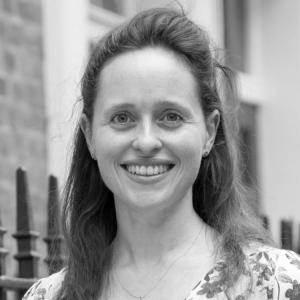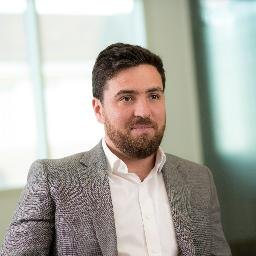New Beacon data reveals an increase in millionaire giving in 2021.
Meet the experts engaging young wealth holders in philanthropy.
A new generation of young wealth holders is becoming increasingly aware of the amazing role charitable giving can play in making change happen. In fact, Beacon research recently identified that the millennial age group had the highest median donation level of any demographic at the start of the UK’s first lockdown.
Despite this, most wealthy millennials are still at the start of their giving journey and many lack the experience and confidence to take their giving to the next step. With this in mind, new organisations are helping millennials to bridge the knowledge gap and develop a greater understanding of philanthropy.
We spoke to Yasmin Ahammad, Jade Brudenell and Kydd Boyle to learn about the giving barriers of young wealth holders and how these can be overcome.
Yasmine Ahammad, Climate Advocacy and Philanthropy Manager, Impatience Earth
 Impatience Earth offers philanthropy advice services pro-bono to wealthy individuals and foundations who are new to funding climate causes or looking to increase their giving to the climate sector. While not explicitly targeted at the younger generation of donors, their combination of education, advice and peer-to-peer support is particularly resonant for those looking to take their first steps into giving.
Impatience Earth offers philanthropy advice services pro-bono to wealthy individuals and foundations who are new to funding climate causes or looking to increase their giving to the climate sector. While not explicitly targeted at the younger generation of donors, their combination of education, advice and peer-to-peer support is particularly resonant for those looking to take their first steps into giving.
How do young wealth holders engage with the course?
Like donors of any age, we encourage younger clients to spend time building up their confidence and expertise around the climate crisis so they can make informed decisions on how to channel their funding in a way that feels meaningful and impactful to them. We help them learn about the climate emergency and how their money can lead to significant positive change through workshops, meetings with experts and introductions to co-funders. Part of our approach is to help donors explore how climate change compounds existing social inequalities, and young people seem to be particularly adept at understanding this.
We have also noticed that younger donors are excited to work in peer-to-peer learning networks and to share ideas. If we can encourage them to create lasting peer networks, we think this will lead to a sustained uptick in climate philanthropy.
Are there barriers to engaging young donors in climate philanthropy?
The most common barrier is that they are initially overwhelmed by the scale of the climate crisis. When young donors see the amount of work required to mitigate the effects of climate change, they often wonder if their donation will simply be a drop in the ocean.
This concern is usually overcome when we show them the inspiring real-world impacts that even a relatively small donation can have. Once they understand this, their despair turns to optimism and a ‘roll your sleeves up’ attitude. This is why it is so essential to demonstrate impact for people early-on in their giving journey; they need to know they are making a difference in order to continue giving.
What pointers would you give to young people looking to get involved in philanthropy?
You have the opportunity to play a catalysing role in making change happen. It’s far easier to start giving than you think and you don’t have to do it alone – there is plenty of help out there, including our pro-bono support. There is the opportunity to engage with peers of your age-group who are on the same journey.
Also, there is a misconception that you need lots of money to make a big difference – this isn’t true. Even small, regular contributions can support incredible climate-saving initiatives, especially in the Global South. And it’s better to start now and learn along the way – the biggest risk is doing nothing at all.
Visit Impatience Earth – Yasmin Ahammad on Twitter
Jade Brudenell, founder, The Conservation Collective
 The Conservation Collective is a network of funds around the world which are using philanthropic donations to help protect and preserve the natural environment. They exist to enable local communities to maximise their positive environmental impact.
The Conservation Collective is a network of funds around the world which are using philanthropic donations to help protect and preserve the natural environment. They exist to enable local communities to maximise their positive environmental impact.
How do you get young wealth holders engaged in conservation?
Many young donors have never given to the environment before. If you suggest getting involved in, for example, stopping deforestation, they often think “wow, that’s huge. That’s a job for the UN, not for me.” But if you say “have you noticed a lack of insect life in your local area?” they start to become intrigued and far more receptive.
It’s the visual, small-scale initiatives that make early-stage donors want to get involved, because they can envisage that their money will have an impact. A good example is something like a seabin, which goes into a port and collects rubbish from the surface of the water. Even though its impact is nominal and its use is typically more to do with raising awareness than true conservation net gain, it’s a fantastic way to begin conversations with new donors.
We see ourselves as a gateway drug, attracting donors with ‘quick-win, small-scale’ projects and guiding them down the road to more strategic and long-term programmes designed for systemic impact.
Are young donors more hesitant around giving money?
It depends on each giver’s personal situation. That said, the younger group is definitely an interesting one. One of our funds currently under development is looking at the possibility of setting up a young donor sub-group. This is because many young donors want to get involved in causes but don’t yet feel they can give much money.
The sub-group will look at other ways they can contribute while donating a more modest amount of money. A lot of the time, young people don’t realise that abilities they have developed at university – say accountancy or law – can also hold huge value for a network like ours. The idea is to get people involved at a level they feel comfortable with, and develop long-term, highly fruitful relationships which contribute considerably to conservation efforts.
Visit Conservation Collective – Conservation Collective on Twitter
Kydd Boyle, co-founder, Horizons
 Horizons is a global network of millennial investors looking to connect, share opportunities and have impact together. With most of the community coming from wealth-owning families, many in the network want to integrate positive social impact into their own investment and leadership style. They are keen to learn from experts and from each other, as they recognise that they have outsized potential to have a positive impact on society.
Horizons is a global network of millennial investors looking to connect, share opportunities and have impact together. With most of the community coming from wealth-owning families, many in the network want to integrate positive social impact into their own investment and leadership style. They are keen to learn from experts and from each other, as they recognise that they have outsized potential to have a positive impact on society.
In your experience, are young donors focused on a specific issue?
There are a range of different interests between our members, but the common denominator is the desire use their wealth for good. Taking a meta-view, I would say mental health, decarbonisation and diversity are the most poignant themes for our community members.
What works to engage young wealth holders in philanthropy?
We believe in encouraging people to understand their own values and the issues that are most important to them, and then empowering them to feel like they can be a part of the solution. Too often individuals are reactive when it comes to their philanthropy not proactive, this can lead to a sentimental rather than strategic decision-making process – which ultimately limits the scale of their giving.
What is the biggest barrier to young people giving?
Few of our network members have the autonomy to give away meaningful sums from their own pockets – it is largely money from a family fund that they are distributing. Sometimes there are competing priorities between the older generations of the family and the young donors, so that can be tricky.
There are still many young and wealthy people who are not really doing anything philanthropic at the moment. That’s not because they don’t want to, but because they don’t know the first step to take. In my mind this is a huge opportunity for the charity sector to build new and effective long-term engagement strategies for potential donors. Getting this right would bring infinite possibilities.
What lessons should young wealth holders learn to get more involved in philanthropy?
Meeting a peer group is absolutely vital for both philanthropy and investing. If you go it alone, it can feel like you’re venturing out into the wilderness and it’s difficult to know who to trust. Becoming part of a community allows you to build relationships with people that have shared interests and circumstances. Try to lean on friendship to lean into philanthropy. This builds lasting foundations and an intent to do more – together.
A good example of this is Big Change, who we recently partnered with. Founded amidst the London riots, a group of six millennial philanthropists threw ideas at a white board for how they could genuinely help. They quickly concluded that education was the root cause of all the inequity they saw around them and began a shared mission to look at the problem differently. After false starts, pivots and lessons learned, today Big Change invests in nascent educational ideas and organisations that have the potential to change the sector. To me, this exemplifies the impact young donors can have when working together.
There is an oft-quoted proverb, “If you want to go fast, go alone, if you want to go far, go together”. My biggest piece of advice for prospective young donors is to connect with like-minded individuals and hatch plans together.
Visit Horizons – Kydd Boyle on Twitter
These examples highlight that while young wealth owners may have a strong interest in social impact, they still need support and help to realise their potential. The future of philanthropy is in their hands and meeting their needs for knowledge, peer support and tangible impact is an investment in that future.
On April 22nd, Beacon is launching brand new research into the attitudes of wealthy millennials towards philanthropy. Find out more and join the launch event here.
